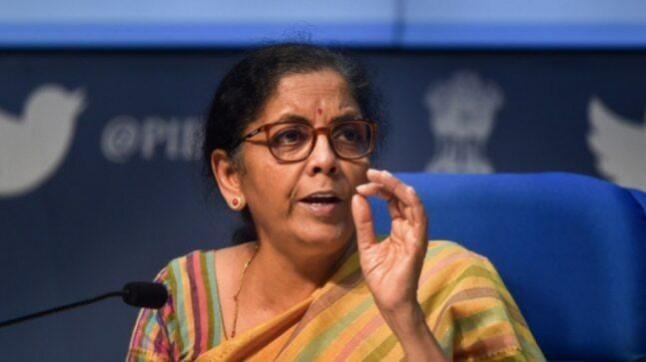On June 7, Finance Minister Nirmala Sitharaman, while speaking at an event of the Corporate Affairs Ministry as part of the 'Azadi ka Amrit Mahotsav', had said that retail investors seemed to act as "shock absorbers" even when foreign portfolio investors kept their bets away from the Indian equity segment.
"Retail investors seem to act like shock absorbers... Even if FPIs went away, our markets did not really have to show their ups and downs in a very distinct way because small investors in the country have come in a big way," Sitharaman, who is also in-charge of the Corporate Affairs Ministry, had said.

Her comments hold sense as a lot of retail investors have made a beeline for the Indian markets in the past few quarters, especially after the Covid-19 pandemic broke out, which many financial experts believe was due to excess liquidity in the economy.
In recent months, the stock market has been witnessing significant volatility with foreign portfolio investors (FPIs) going on a selling spree amid tightening monetary policy actions to address rising inflation and geopolitical tensions.
Rising interest rate is typically a deterrent to economic growth as it raises lending costs for industries and corporates.
Foreign investors have pulled out over $42 billion or Rs 3.26 lakh crore from the Indian markets in the last eight months.

However, the silver lining came as domestic investors pooled in over $32 billion or Rs 2.5 lakh crore during the same period.
In fact, these changes in the trend of investment patterns are not new.
Global investment bank Morgan Stanley had said in late April the combined holdings of the domestic mutual funds and direct households in stocks have risen over 600 basis points since 2015, whereas those of FPIs have declined about 150 basis points.
It can be gauged by looking at the figures of opening of the dematerialised (demat) accounts in the country.
Opening of new demat accounts, monthly, on an average increased seven-fold since financial year FY20.
In FY20, average new demat accounts was at 4 lakh per month, whereas it increased to 12 lakh in FY21. In FY22, it rose to around 29 lakh, which is more than seven times as against FY20.
The cumulative demat accounts which stood at 3.6 crore as on March 2019 were 7.7 crore at the end of last year, which essentially means what was achieved in two decades has been achieved in the last two-and-a-half years.
One has to accept that internet technology and mobile-based investing platforms are key enablers in the democratisation of the equity market culture among the masses in India.
Not just retail investors, footfalls of domestic institutional investors with deep pockets too are high in the markets and they have the capabilities to purchase equities of match amount to that of the foreign institutional investors.
Because of the large participation by domestic investors, the decline in indices in recent months in India has been relatively lower as compared to the US and various other major global exchanges.
(With inputs from IANS)

















